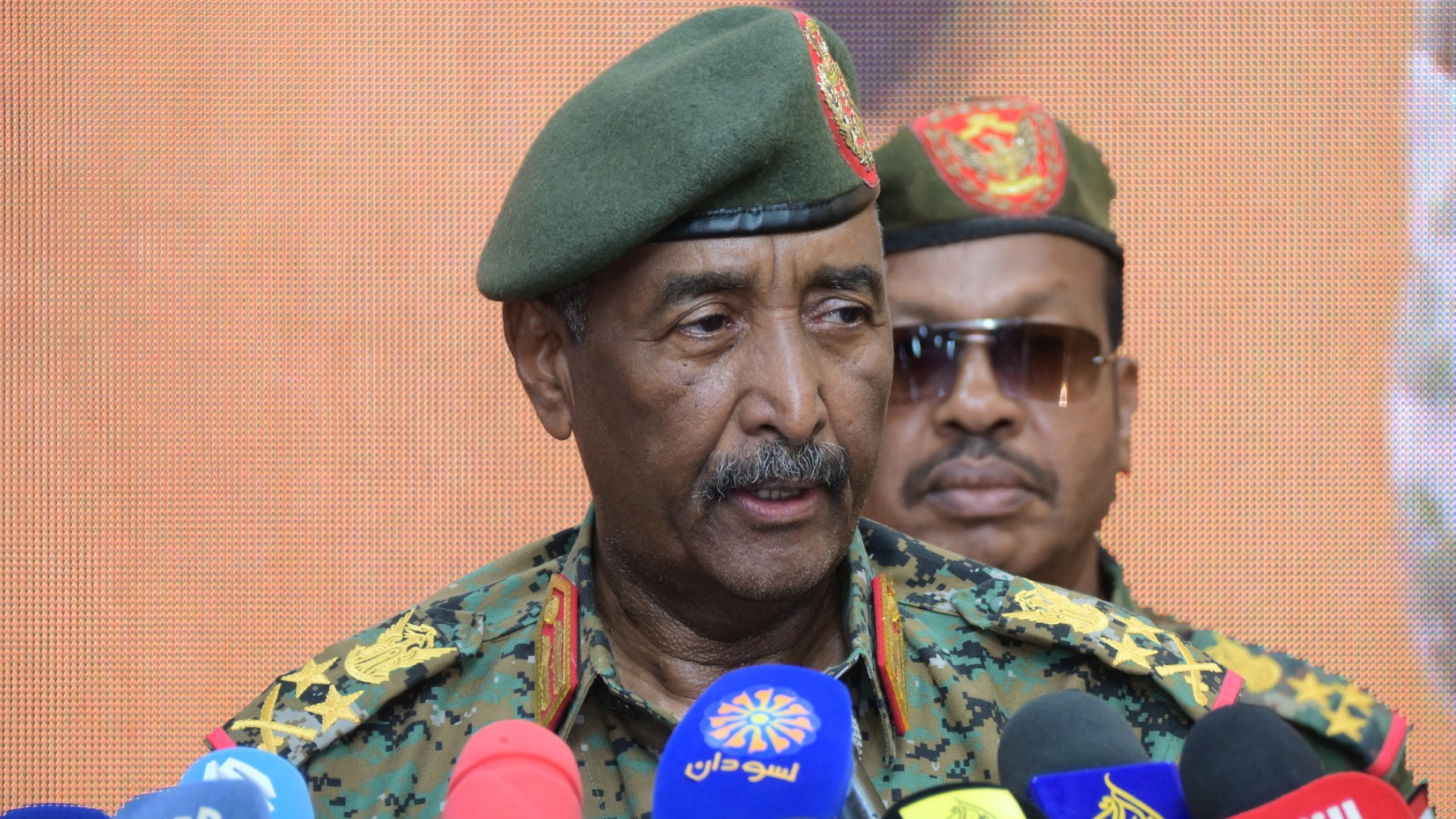Sudans army and RSF militia enter bonebreaking phase in Nyala and Port Sudan

After more than two years of brutal conflict, Sudan’s civil war appears to have entered a bone-breaking phase, marked by intensified attacks and a hardening of rival power structures.
The Sudanese Armed Forces (SAF) and the paramilitary Rapid Support Forces (RSF) are now fighting not only for territory, but for political legitimacy, as both sides escalate military operations across the country
Fighting has surged in key strongholds, especially in Darfur and Kordofan, where the RSF is pressing ahead with plans to form a parallel government.
Both sides are deploying drones, air raids, intelligence units, and special forces in increasingly aggressive operations, particularly in Nyala - capital of South Darfur and a strategic RSF centre- and Port Sudan, the current seat of the SAF-aligned administration.
The SAF has launched sustained airstrikes on military installations in Nyala in recent days, with a focus on the city’s international airport.
New MEE newsletter: Jerusalem Dispatch
Sign up to get the latest insights and analysis on Israel-Palestine, alongside Turkey Unpacked and other MEE newsletters
Meanwhile, the RSF has carried out near-daily drone attacks on military and civilian targets, as part of what observers describe as a strategy to dismantle the SAF’s claims to legitimacy.
The government in Port Sudan accuses the United Arab Emirates (UAE) of supporting the fragmentation of Sudan, while the RSF claims that SAF is backed by Iran, Russia, and other so-called rogue states, alongside the Sudanese Muslim Brotherhood.
Parallel government
In South Darfur, the RSF has consolidated control and is preparing to declare a new civilian government, aiming to supplant the Port Sudan-based administration. This follows the formation of the Foundation Alliance, a coalition of political and armed groups- including the Sudan People’s Liberation Movement–North (SPLM–N) led by Abdulaziz al-Hilu - announced in Nairobi, Kenya.
On its Telegram channel, the RSF has circulated images and videos purporting to show life returning to normal in Nyala, with markets open, worshippers attending mosques, and football matches taking place. It has also highlighted tribal reconciliation events and military training camps under RSF supervision.
However, multiple eyewitnesses, including aid workers, paint a bleaker picture.
Sumeya Adam, a resident of the Hai Alwadi neighbourhood in Nyala, told Middle East Eye via Starlink that the RSF is “running all city institutions, including the police, and killing or detaining anyone who opposes them”.
“They control trade, gold production, and supply lines- especially in Songo and other key areas in South Darfur,” she added.
Another resident, who asked not to be named for security reasons, said the city lives in a state of fear. “RSF claims Nyala is secure, but they rule by force. People are terrified. The SAF bombs the city, but the RSF violates human rights on the ground,” he said.
SAF air raids have targeted Nyala Airport and its surroundings, reportedly destroying infrastructure such as the Aldaman Hotel. SAF military sources claim these attacks aim to disrupt weapon shipments allegedly arriving via the UAE through Chad and the Central African Republic (CAR).
One SAF officer, speaking anonymously, told MEE that their forces had also targeted foreign mercenaries and intelligence operatives supporting the RSF.
“We believe UAE intelligence officers were killed in Nyala. That’s why they are retaliating with drone attacks on Port Sudan,” he alleged.
Others accused SAF of targeting civilians. Ashraf Hassan, who fled Nyala for Al Da’en in East Darfur, said: “These airstrikes are ethnically motivated. They aim to terrify civilians and undermine RSF’s popular base. Many innocent people have been killed.”
Port Sudan under drone fire
On the other side of the country, Port Sudan - once a haven of relative stability - has come under sustained RSF drone attacks.
Civilian infrastructure has been heavily damaged, including fuel depots, an oil refinery, and the city's airports and seaports.
The strikes have continued for more than ten days, with at least two attacks daily, one at night and another in the early morning.
Eyewitnesses described severe fuel and gas shortages, widespread blackouts, and rising levels of malnutrition and illness, particularly among children. Schools have been closed, and transportation and supply chains have been severely disrupted.
Mohamed Hamid accused the UAE of orchestrating the attacks. “The drones are launched from UAE bases in the Red Sea,” he claimed. “This is foreign intervention and occupation disguised as support. The Sudanese people will resist it.”
Abdullah, another Port Sudan resident, said the government’s inability to defend its de facto capital had exposed its weakness. “If they can’t protect the city where their own leadership is based, how can they protect the nation?” he asked.
“This war is meaningless. The people are caught between two forces that show no regard for civilian lives,” he added.
Ground fighting is also expanding rapidly across Darfur and Kordofan.
Both the SAF and RSF claim to have seized territory in West Sudan, particularly in towns such as Al-Khowai and Al-Nuhud in North Kordofan.
The battle for El Fasher, the last major SAF stronghold in North Darfur, is emerging as a pivotal confrontation. The SAF insists it is on the verge of lifting a year-long RSF siege, while the RSF claims it is only a matter of time before they take full control of the city and declare their parallel government from within Sudan.
RSF drones have also struck towns far from the front lines, including Kosti in White Nile state, Damazine in Blue Nile state, Atbara in River Nile state, and Merowe in the north- signalling the conflict’s widening geographic scope.
middleeasteye.net